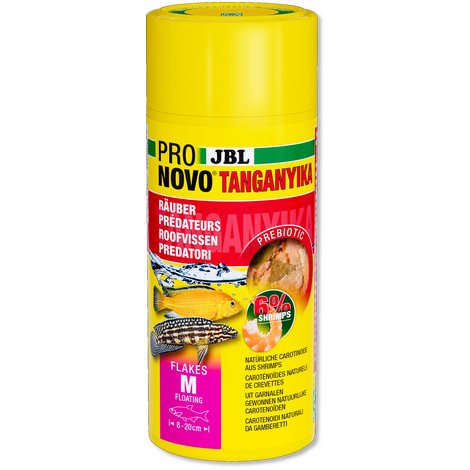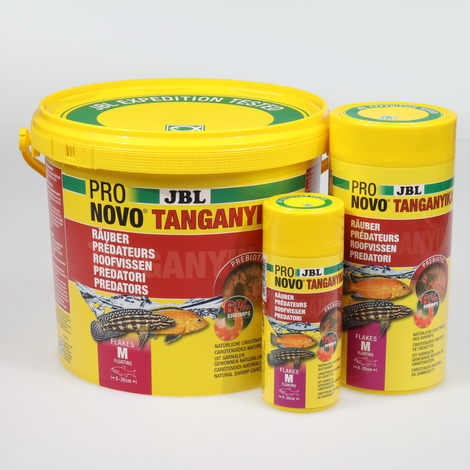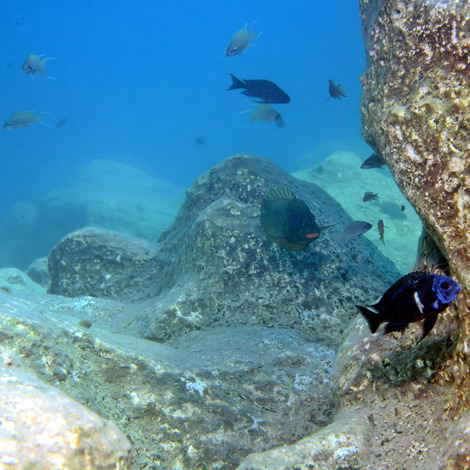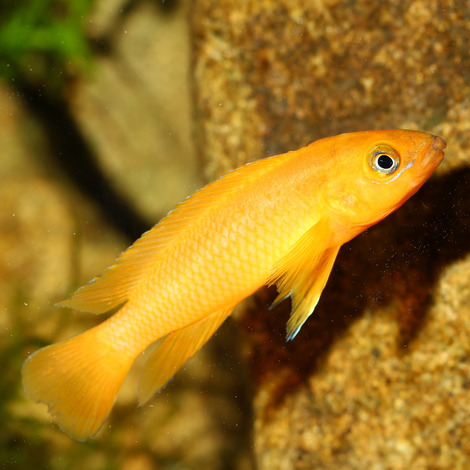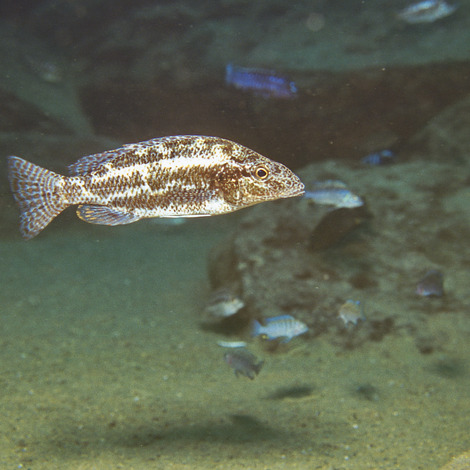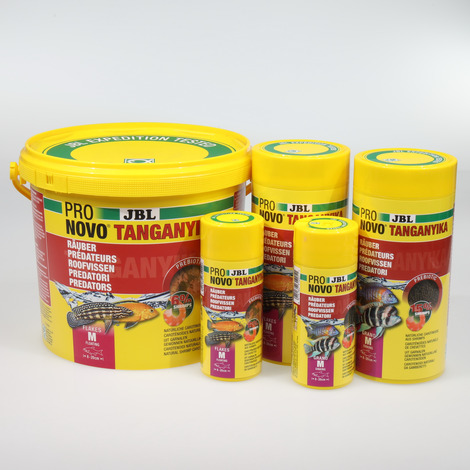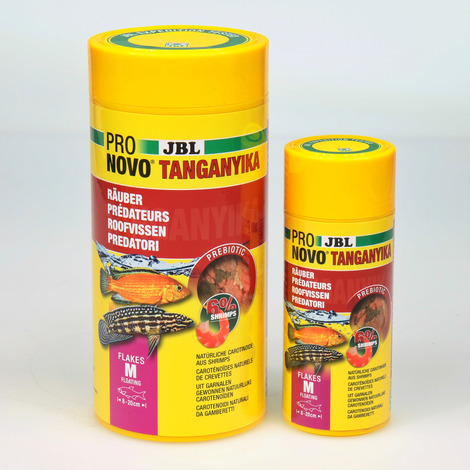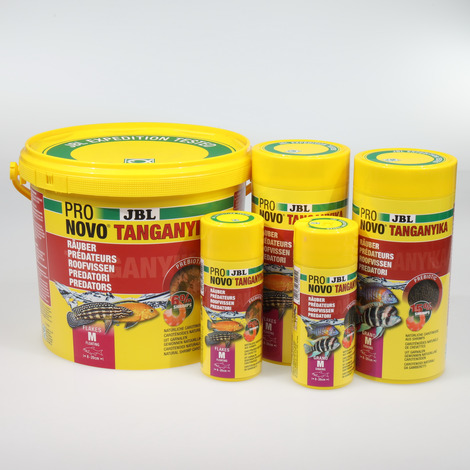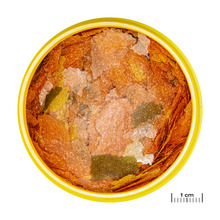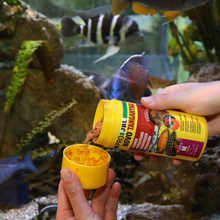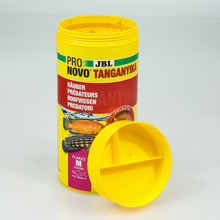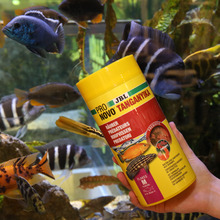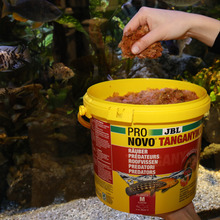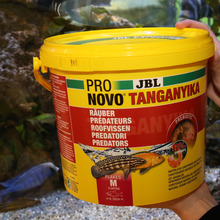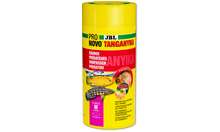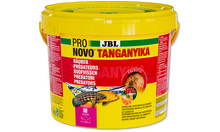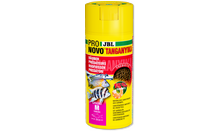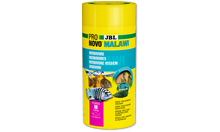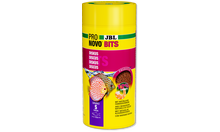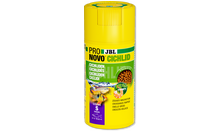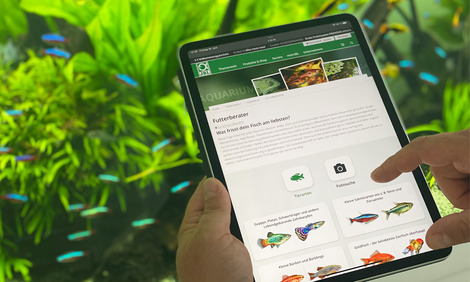In the Rift Valley lakes of East Africa (Lakes Malawi and Tanganyika), many cichlids have adapted to graze the algae growth from the rocks for the microorganisms living in them (herbivorous growth eaters). JBL PRONOVO MALAWI was developed for these species. In contrast, almost all remaining species in both lakes live predatory lives and eat fish, microorganisms, shrimps and fish fry. Some even eat only the scales of other fish (Plecodus). JBL JBL PRONOVO TANGANYIKA was developed for the predatory species. If both groups are kept together in ONE aquarium, it is essential you offer both types of food. Each feeding type will then receive the right food.
Typical predators of Lake Tanganyika: Lamprologus, Neolamprologus, Julidochromis, Cyphotilapia, Telmatochromis, Calinochromis Typical predators of Lake Malawi: Trematocranus, Haplochromis, Nimbochromis, Sciaenochromis, Labidochromis
Advantages of JBL foods:
use of pure fish protein without cheap fish meal.
Optimum protein/fat ratio.
Mainly proteins from aquatic animals.
Reduction of algae growth and optimal fish growth due to adapted phosphate content.
Prebiotic: prebiotics are "substrates that are selectively used by host microorganisms and confer health benefits." Scientists are agreed on this that they promote digestion and thus health. In the case of our fish, there is another essential aspect: with better digestion, less is excreted and the water is thus less polluted, causing fewer algae problems and keeping the water cleaner.
As the majority of cichlids cultivated from Lake Tanganyika are predators, we have named the food for predatory species PRONOVO TANGANYIKA. Since most of the species cultivated from Lake Malawi are growth eaters, JBL has named this food PRONOVO MALAWI.
JBL PRONOVO TANGANYIKA FLAKES M
Aquarium staple food flakes for predatory cichlids from Lake Tanganyika & Malawi from 8-20 cm
- Prebiotic & floating aquarium fish food: dedicated dietary fibres in the food supply the beneficiel intestinal bacteria with food for healthy digestion
- Natural raw ingredients without artificial additives for a natural diet and healthy cichlids. Tested on JBL research expeditions in Lake Malawi and Lake Tanganyika with cichlid species down to a depth of 40 m
- Very high acceptance even with choosy cichlid species thanks to high-quality raw ingredients such as salmon, shrimps and squid
- With the very high-quality natural astaxanthin from krill and spirulina, which ensures perfect colour formation in cichlids from Lake Tanganyika and Lake Malawi
- Package contents: original sealed, air- and light-tight, recyclable tin with dosing aid inside the lid
